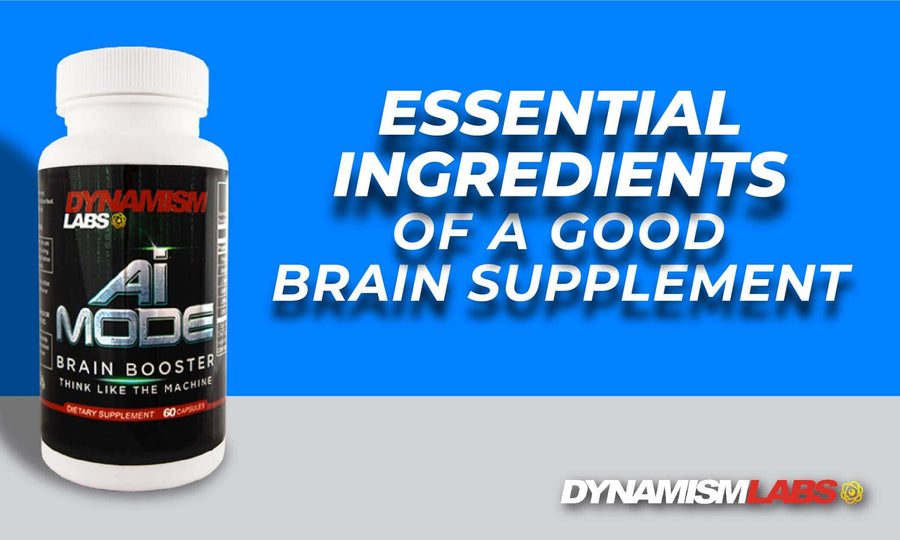When looking for the best brain boosting supplements, a lot of attention to detail should be taken into account. What, exactly, are the ingredients? Do they work? Is there any scientific evidence that they might? The answers to these questions are some of those that need to be asked.
There are several aspects to brain boosting supplements. Memory enhancement is one of the most sought after outcomes from these supplements, but the ones to look for are those that also are the best supplements for brain health.
What would be in the best brain boosting supplement?
Phosphatidylcholine: It is known that anticholinergic foods and medications have a potential link to dementia. These medications include both prescription and over the counter medications. Studies done on mice that were bred to have low levels of choline in the brain have extremely poor memory. A good brain supplement would address this issue.
AI Brain Mode Brain Booster has this in it. It comes from a natural food source, which makes it even better. Food based supplements tend to have more available nutrients than those made strictly from chemicals.
Going back to the mice, a study was done to see if the brain would develop more choline after ingestion of Phosphatidylcholine. Those mice who lacked sufficient amounts of the memory boosting chemical had the amounts boosted… along with their memory.
Bacopa monnieri: Part of promoting brain health is to use substances that are nootropic. That means that they help maintain the brain and find new pathways when something is wrong. According to PubMed, the Ayurvedic herb bacopa monnieri seems to have this property.
There are several reasons this is useful in finding the best brain boosting supplements. One is that it may help those who already suffer from dementia. It doesn’t seem to matter which stage it is in; some benefits appear to apply.
Because this is a newer herb to Western medicine, there are a few questions left. It is known to have low toxicity in humans and animal test subjects from use during the various studies. Some scientists worry that there may be long term toxicity problems, but that is rather unlikely. In India this herb has been used for thousands of years.
L-theanine: Have you ever had a cup of green tea and found yourself able to think more clearly afterwards? It’s not just the caffeine. That will be covered later in this article. One of the phytochemicals in green tea is called L-theanine. Various types of tea have been studied for a long time, and green tea is considered one of the best.
In animal models, this chemical has helped in several ways. In those that have Alzheimer’s disease, it has shown benefits for brain function. It has been studied for many years for its helpfulness with several types of mental illness. Depression, anxiety and even schizophrenia seem to be affected by L-theanine.
GABA: Our brains naturally produce GABA; it is a neurotransmitter. It is important and can diminish with age. It is also disrupted in some types of mental illness. It may be surprising, but many foods are naturally high in GABA. As some of them are on the menu for Thanksgiving and other holidays, it’s no real surprise that many want a nap afterward. It’s not just the tryptophan content of the turkey.
There is a bit of debate about whether or not GABA is useful as a supplement. While many studies have been done, some of them were done by scientists who may have had a conflict of interest. That said, even those without said conflict seem to support the use of GABA as a brain boosting supplement.
When looking at the ingredients label of a supplement, seeing a bunch of ingredients that don’t seem to come from nature can be rather off putting. However, as GABA is found in foods as wide ranging as potatoes and bananas, don’t be worried about its addition to your best brain boosting supplement.
Caffeine: Most people reach for a cup of coffee or tea in the mornings to help them wake up. Students who are studying often use caffeine to help them do so into the wee hours of the morning. There is a good reason for this. It helps with focus and attention.
The brain uses a lot of chemicals in order to function properly. One of the chemicals is called dopamine. While many consider it to be one of the reward chemicals in the brain, it doesn’t exactly work like that. However, it is important. Caffeine helps boost dopamine’s ability to focus on the rewards of results.
For this reason, a lot of people who are in sports will use caffeine to enhance their performances. However, that doesn’t mean that it is simply for that purpose. It will help enhance performance in many areas, including memory boosting.
Ginkgo: Who hasn’t heard of the benefits of ginkgo biloba for the brain? Most of us have and many take it faithfully. However, does it really help or is it a placebo? It depends on what you are looking for. This is an herb that seems to help prevent brain damage in some people, particularly athletes. However, it can do more than that.
When it is given to dementia patients, at least four studies suggest that it may help reduce some of the ravages of the disease. Combined with exercise, it may help improve memory for those who are looking for a brain booster. This ancient tree has many benefits.
Brain boosting supplements litter the market, but not all are made the same. Some have attention to detail, and that’s important if you want the best brain supplement, memory enhancer and brain booster available.
Resources
https://www.ncbi.nlm.nih.gov/pubmed/7782901
https://www.ncbi.nlm.nih.gov/pubmed/23772955
https://www.ncbi.nlm.nih.gov/pubmed/?term=l-theanine+brain
https://www.ncbi.nlm.nih.gov/pubmed/28056735
https://www.ncbi.nlm.nih.gov/pubmed/25896423
https://www.ncbi.nlm.nih.gov/pubmed/29944861
https://www.ncbi.nlm.nih.gov/pubmed/8937445
https://www.ncbi.nlm.nih.gov/pubmed/26500584
https://www.ncbi.nlm.nih.gov/pubmed/28931444
https://optinghealth.com/foods-high-in-gaba/

